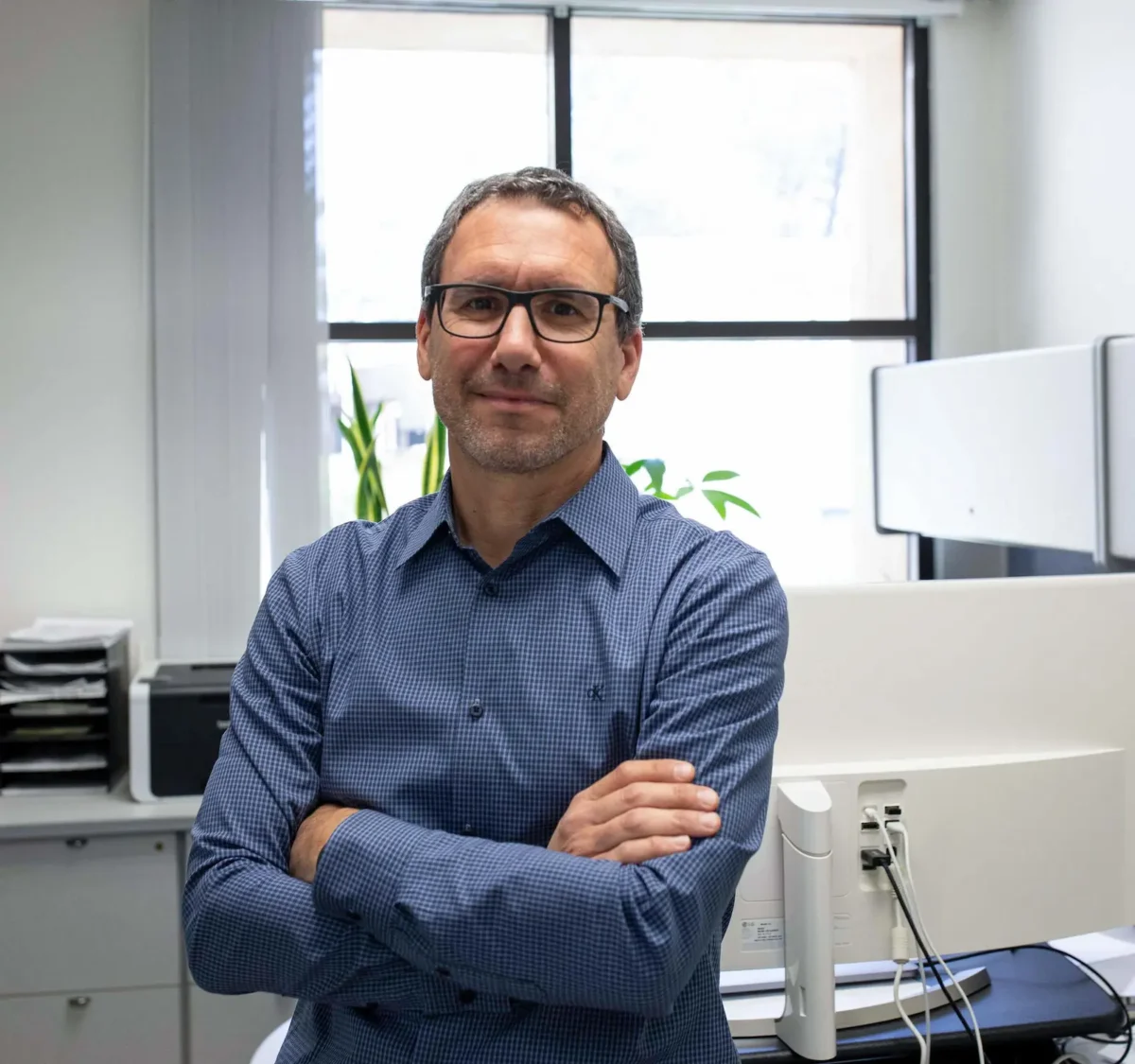Dr. D’Angelo earned his BS and MS degrees in chemistry at the University of Cordoba, Argentina, and his PhD in biochemistry and molecular biology from University of Buenos Aires. He then trained as a postdoctoral fellow in cell biology at The Salk and the Scripps Research Institute in San Diego. In 2011, Dr. D’Angelo was appointed as an Assistant Professor of the Biochemistry and Biophysics department and a Principal Investigator of the Cardiovascular Research Institute at the University of California San Francisco. In 2012, he was named Scholar of the Pew Charitable Trust. Dr. D’Angelo was recruited to Sanford Burnham Prebys in October 2014.
Funding Awards and Collaborative Grants
Pew Charitable Trust Scholar in Biomedical Sciences
Related Disease
Aging-Related Diseases
Nuclear pore complexes (NPCs) are multiprotein channels that penetrate the nuclear envelope and act as the gatekeepers of the genome. NPCs work together with nuclear transport receptors to ferry molecules in and out of the nucleus. They also regulate multiple cellular processes such as gene expression, chromatin organization, and RNA processing in a transport independent manner. In recent years, our lab and others identified that cells can change the configuration of nuclear pore complexes to modulate specific cellular processes, such as T cell homeostasis and activation, muscle differentiation, tumor development and metastasis.
Because of the essential function of nuclear pore complexes in cell survival, proliferation and differentiation, it is not surprising that changes in the nuclear transport machinery have long been observed in cancer cells. Yet, how most of these alterations contribute to cell transformation and tumor development is poorly understood.
Our laboratory is working to:
- Establish how alterations in the nuclear transport machinery contribute to cancer development and progression
- Dissect the role of nuclear pore complexes in the regulation of immune cell function
- Identify, validate, and modulate new therapeutic targets for cancer and immune disorders
Our long-term goal is to develop novel therapies targeting the cellular nuclear transport machinery.
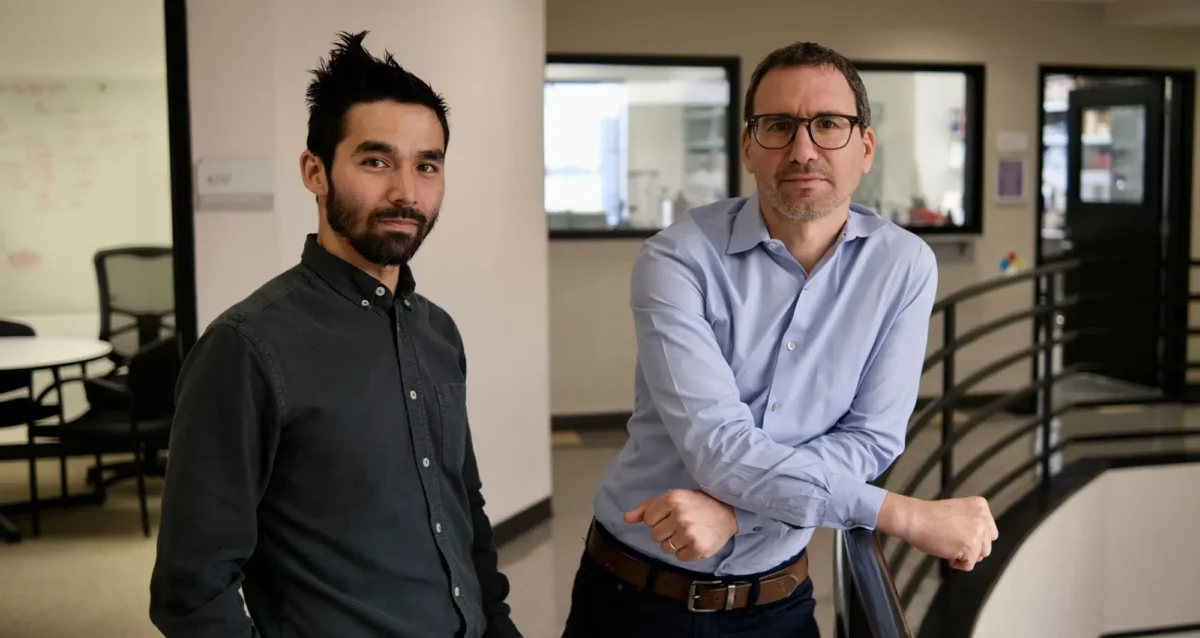 Mar 31, 2025
Mar 31, 2025Delicate balancing act determines how many genome gateways form in cells
Mar 31, 2025Study finds that protein creation and disposal systems control the amount of nuclear pore complexes in cells.
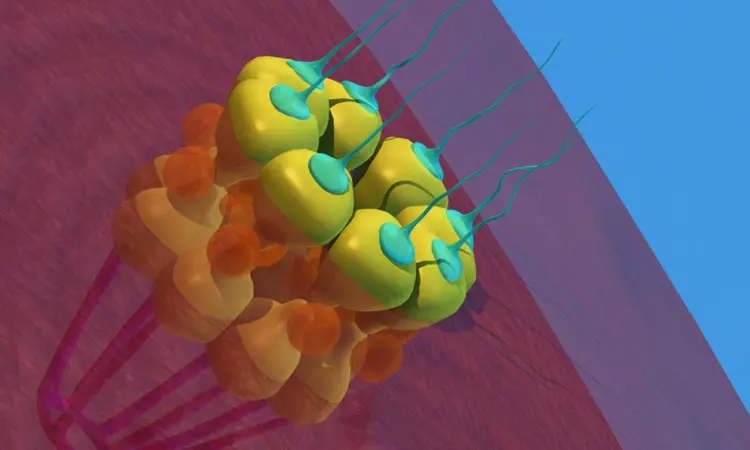 Jun 5, 2024
Jun 5, 2024How a protein component of nuclear pore complexes regulates development of blood cells and may contribute to myeloid disorders
Jun 5, 2024Nuclear pore complexes (NPCs) are channels composed of multiple proteins that ferry molecules in and out of the nucleus, regulating…
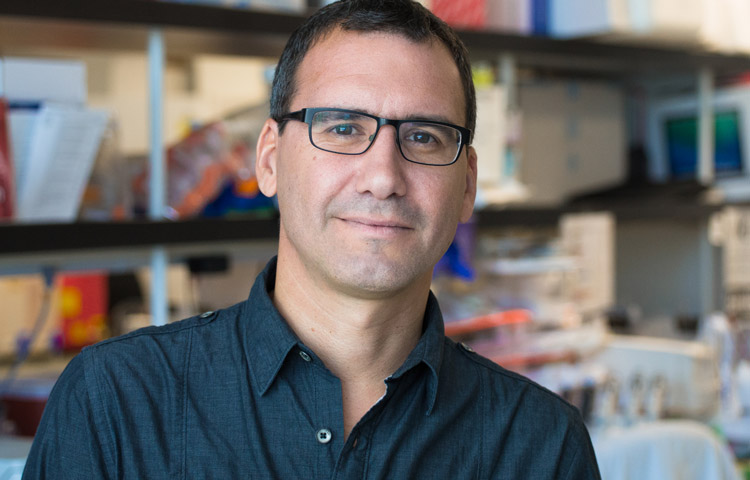 Sep 28, 2020
Sep 28, 2020Scientists kill cancer cells by “shutting the door” to the nucleus
Sep 28, 2020Proof-of-concept study shows that stopping the construction of nuclear pore complexes selectively kills cancer cells. Scientists at Sanford Burnham Prebys…
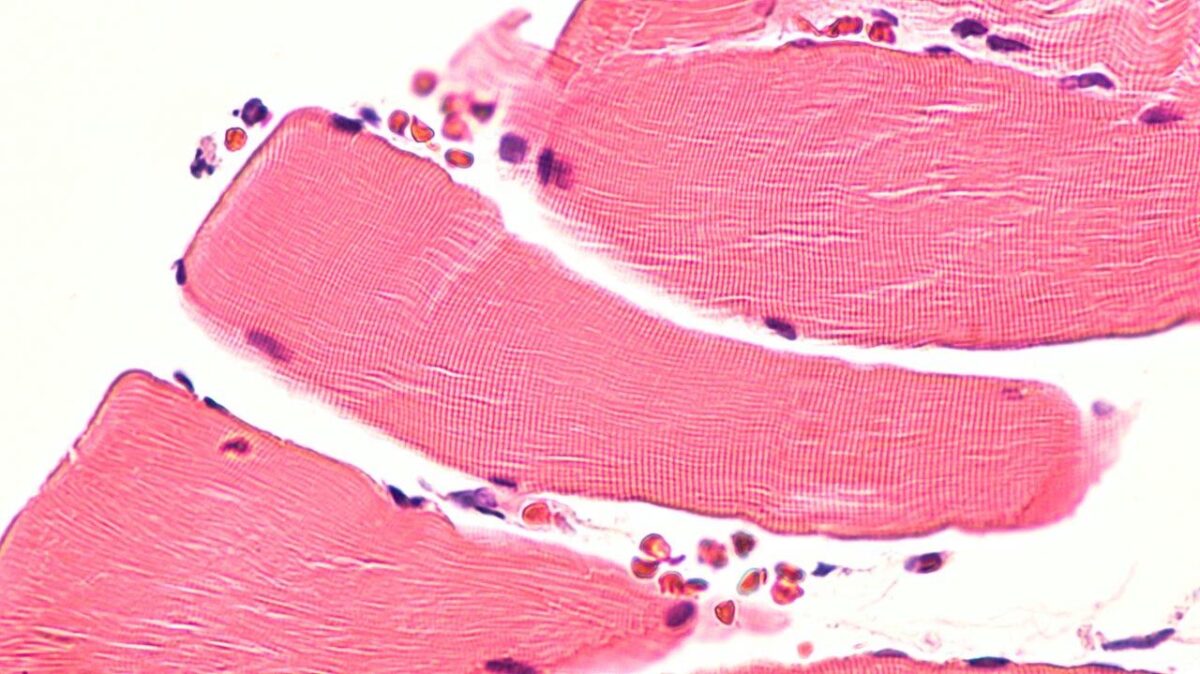 Jun 5, 2017
Jun 5, 2017Muscle-enhancing protein could hold key to treating muscular dystrophies
Jun 5, 2017Nuclear pore complexes are large multiprotein channels that act as the sole gateway between the nucleus and cytoplasm. For many…
